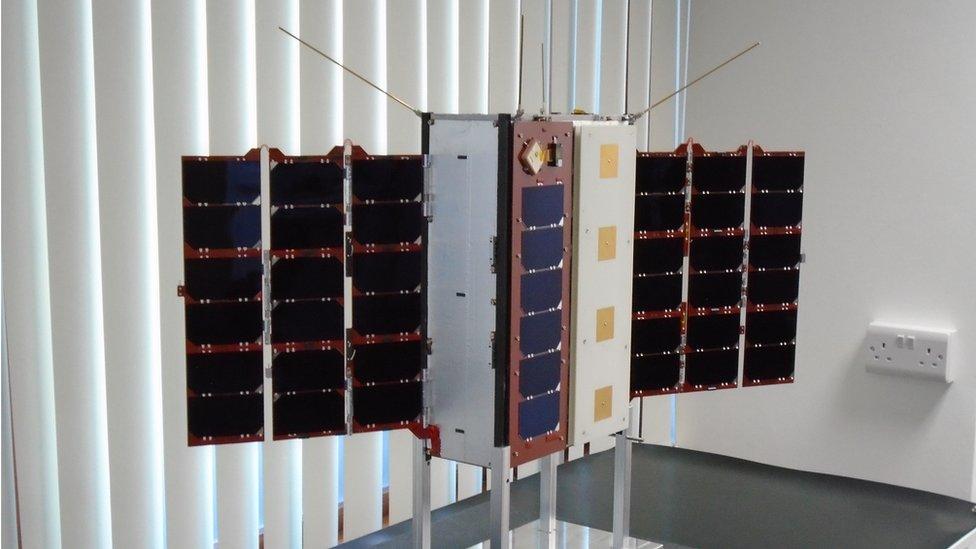Climate change: British satellites will help fight climate change and save wildlife
- Published
- comments

One of the satellites was built by In-Space Missions which is based in Hampshire
Lots of people and organisations are committed to the fight against climate change, now three British satellites are set to be used to help tackle climate issues and protect endangered wildlife.
The satellites, which were all built in the UK, are set to launch on a SpaceX rocket later this week. SpaceX is the private company owned by inventor Elon Musk.
Companies based in the UK received almost 拢15 million from the UK Space Agency to develop the trio of satellites which are due to lift off from Nasa's Kennedy Space Center in Florida.
The satellites will help scientists to monitor and tackle climate change, track endangered wildlife, and help farmers by providing data on the health of cattle and crops and for water and soil management.
"As we get ready to host the UN Climate Change Conference, COP26, in Glasgow later this year, the UK is leading the way in exploiting space to tackle climate change, developing satellites that enable our world class scientists to monitor the environment in remarkable detail," said Science Minister Amanda Solloway.
"As well as supporting our climate ambitions, these British-built satellites will provide exciting innovation in remote sensing and tracking, kick-starting industry to offer new services that will help to improve all our lives."
Three UK-built satellites are set to launch on the Falcon 9 SpaceX rocket
Artificial satellites are used for all sorts of purposes.
Satellites like the Hubble Space Telescope and the International Space Station, help scientists explore space
Communications satellites help us stay in touch with people all over the world, with some satellites used for mobile networks and to provide internet connections
Weather satellites help us observe the Earth from space to help predict weather patterns
Satellites are also used in the Global Positioning System (GPS), which we use as maps on our phones
Two of the satellites, which were built by the company Spire based in Glasgow, will help improve how data is collected from space and sent back to Earth.
This will provide a way for large amounts of data to be delivered at speed to any location in the world, including remote and rural areas, disaster areas and even at sea.
It's expected to help improve our understanding of the environment and the impact humans have on it.
The third satellite was built by the organisation In-Space Mission which is based in Hampshire.
"The team here at In-Space is incredibly proud to be launching our highly capable and innovative satellite which has come together in less than a year," said the company's CEO Doug Liddle.
"We're particularly excited to be flying on a Falcon 9 from Cape Canaveral - a location with such an amazing history."
The SpaceX Falcon Heavy rocket, which will transport the satellites, is due to launch from Nasa's Kennedy Space Center in Florida at 8pm on Friday 25th June.
- Published15 February 2017
- Published6 January 2021
- Published16 February 2021
